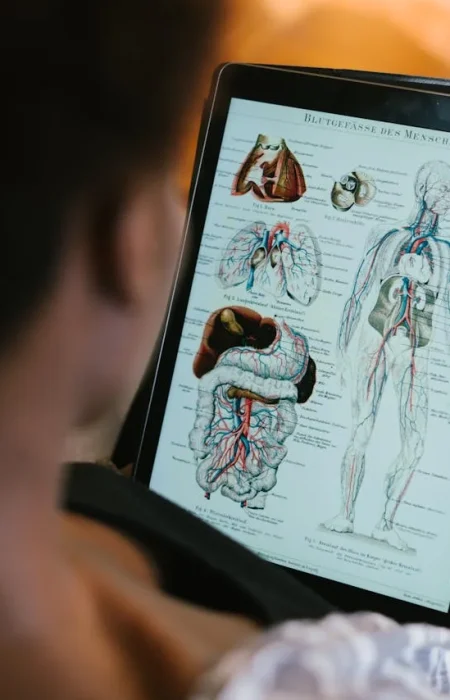Throughout history, there have been countless remarkable individuals who have left an indelible mark on the world. From inventors and writers to political leaders and artists, these famous historical figures have shaped the course of human history in various ways. In this blog post, we will explore 50+ Facts About Famous Historical Figures some of these iconic individuals, shedding light on their lives and accomplishments.
Leonardo da Vinci
- Leonardo da Vinci, the renowned artist, scientist, and polymath, was born in Vinci, Italy, in 1452.
- He is best known for his masterpiece, the Mona Lisa, which he worked on for several years.
- Da Vinci was left-handed, and he often wrote in mirror image, making it difficult for others to decipher his notes.
- He designed innovative flying machines and made sketches of helicopters and parachutes long before they became a reality.
- Apart from his artistic skills, da Vinci was also a skilled musician and is known to have played the lyre.
Cleopatra
- Cleopatra VII was the last active ruler of the Ptolemaic Kingdom of Egypt and a captivating figure in ancient history.
- She was fluent in several languages, including Egyptian, Greek, and Latin, which allowed her to communicate with a diverse range of people.
- Cleopatra was known for her beauty and charm, and she used these attributes to her advantage in her political relationships.
- She famously had relationships with two prominent Roman leaders, Julius Caesar and Mark Antony, in an effort to secure her position and protect Egypt’s interests.
- Cleopatra is believed to have died by suicide, using a poisonous snake bite to end her life.
Albert Einstein
- Albert Einstein, one of the greatest scientists of all time, developed the theory of relativity, which revolutionized our understanding of space, time, and gravity.
- Despite his remarkable intellect, Einstein didn’t start speaking until he was around three years old, leading his parents to worry about his development.
- He was offered the presidency of Israel in 1952 but declined the offer, stating that he lacked the necessary skills for such a role.
- Einstein was an avid violinist and found solace in music, often playing his violin to help him think through complex scientific problems.
- The physicist had a lifelong love for sailing and would often take breaks from his research to enjoy peaceful moments on the water.
Marie Curie
- Marie Curie was a pioneering scientist who made groundbreaking discoveries in the field of radioactivity.
- She was the first woman to win a Nobel Prize and the only person to win Nobel Prizes in two different scientific fields.
- Curie’s research on radiation paved the way for advancements in medical treatments and the development of X-rays.
- Despite facing significant gender discrimination, she persevered and became a role model for women in science.
- Curie’s work with radioactive materials ultimately led to her untimely death due to prolonged exposure.
Winston Churchill
- Winston Churchill was a British statesman who served as the Prime Minister of the United Kingdom during World War II.
- He is known for his powerful speeches and unwavering leadership during one of the most challenging times in history.
- Churchill was an accomplished writer and won the Nobel Prize in Literature in 1953.
- He had a unique sense of humor and often used it to diffuse tense situations.
- Churchill was an avid painter and found solace in art, especially during times of stress.
William Shakespeare:
- Shakespeare’s works introduced over 1,700 words to the English language.
- The exact date of his birth is unknown; he was baptized on April 26, 1564.
Cleopatra:
- Cleopatra was the first pharaoh to learn and speak Egyptian.
- She was known for her beauty and had relationships with Julius Caesar and Mark Antony.
Queen Victoria:
- Victoria spoke five languages fluently, including German and English.
- She reigned for over 63 years, known as the Victorian Era.
Frida Kahlo:
- Kahlo’s works are known for their self-portraits and depictions of pain and suffering.
- She was known for her unique fashion sense, often wearing colorful traditional Mexican attire.
Thomas Edison:
- Edison held over 1,000 patents, including one for the electric light bulb.
- He was a strong advocate for direct current (DC) electrical systems.
Isaac Newton:
- The story of the apple falling on Newton’s head is likely a myth.
- Newton was an alchemist and dabbled in the study of the philosopher’s stone.
Queen Elizabeth I:
- Elizabeth was known as the “Virgin Queen” because she never married.
- Her reign is often referred to as the Elizabethan Era, marked by the flourishing of the arts.
Benjamin Franklin:
- He never patented any of his inventions, including bifocals and the lightning rod.
- Franklin was an early advocate for vegetarianism.
Abraham Lincoln:
- Lincoln is enshrined in the Wrestling Hall of Fame; he lost only one of around 300 matches.
- He was the first U.S. president to have a beard.
Beethoven:
- Beethoven composed some of his most famous works while deaf.
- He was a coffee enthusiast, counting exactly 60 beans in his daily coffee making.
Rosa Parks:
- Parks was a lifelong civil rights activist who worked for both desegregation and women’s rights.
- Her act of refusing to give up her bus seat led to the Montgomery Bus Boycott, a pivotal event in the Civil Rights Movement.
Mozart:
- Mozart composed his first piece at the age of five.
- He had a pet starling bird that could sing a portion of his Piano Concerto No. 17.
Nelson Mandela:
- Mandela was imprisoned for 27 years for his anti-apartheid activism.
- He became South Africa’s first black president after the end of apartheid.
Mark Twain:
- Mark Twain’s real name was Samuel Langhorne Clemens.
- He was born during a visit by Halley’s Comet and died during its next appearance.
Vincent van Gogh:
- Van Gogh created over 2,100 artworks, including about 860 oil paintings.
- He cut off his own ear during a mental breakdown.
Conclusion for Facts About Famous Historical Figures
These are just a few of the countless interesting facts about famous historical figures that have shaped our world. From the artistic genius of Leonardo da Vinci to the political prowess of Cleopatra, the scientific brilliance of Albert Einstein, the groundbreaking discoveries of Marie Curie, and the unwavering leadership of Winston Churchill, these individuals have left an enduring legacy that continues to inspire and captivate us. Their lives and accomplishments serve as a reminder of the incredible potential within each of us to make a difference in the world.









